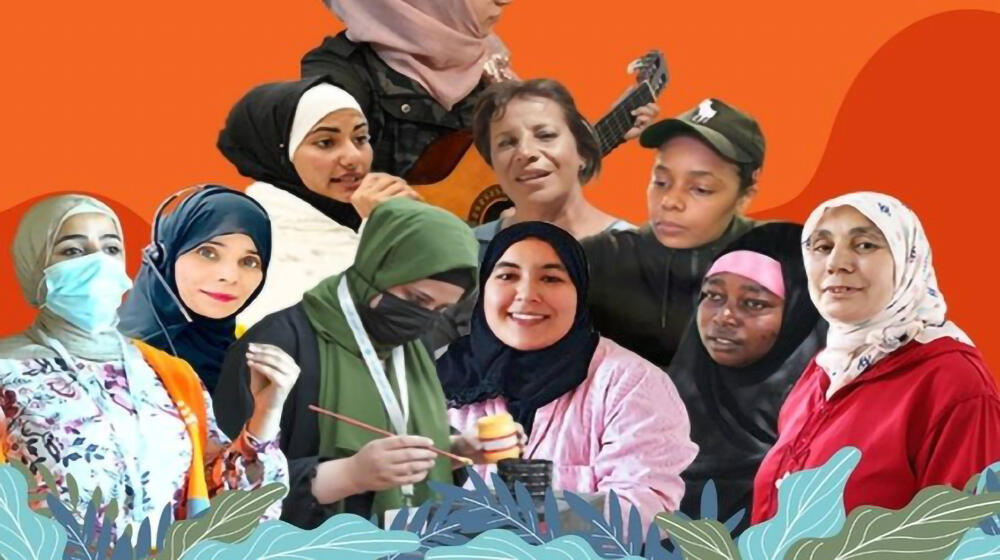The United Nations Populations Funds celebrate a group of women who suffered a variety of gender-based violence and harmful practices. But they gathered all their strengths and decided to reverse the path for the better. They also joined the effort to support other women and girls in their communities so that they don’t go through what they have suffered from.
We are bringing to you these success stories to inspire other women and girls to never give up and seek support.
Celebrating the rise of females scuba divers
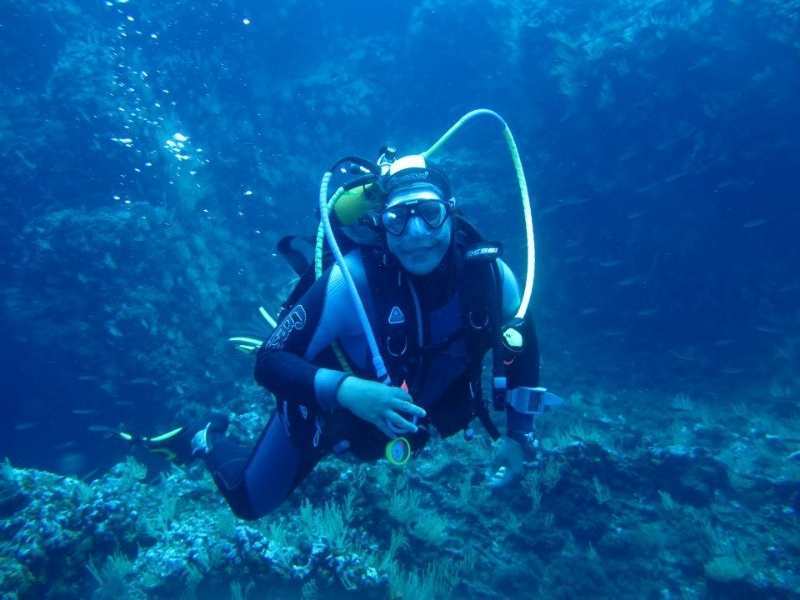
Like many other sports, Scuba diving has been considered historically to be a male dominated field. However, this is changing. Samia Balistrou - a scuba diver from Algeria - is one of many women who are breaking down the gender barriers. She is the first woman in Africa to hold the level III diver's certificate and has been a diving instructor for more than three decades.
Outstandingly, Samia passed her level one training. “My first scuba diving course was a turning point towards a miraculous story of success and change in my life,” she says.
Very determined, Balistrou made a real success out of a hobby, and became an instructor who helps set generations of girls and women whose great desire is to embrace the sea and access the world of scuba-diving on a path to lifelong success.
"This was seen as an adventure in such a conservative community like Tipaza. Despite the underwater beauty, scuba-diving for girls and women was not easily acceptable," adds Samia proudly.
Recycling for a good cause
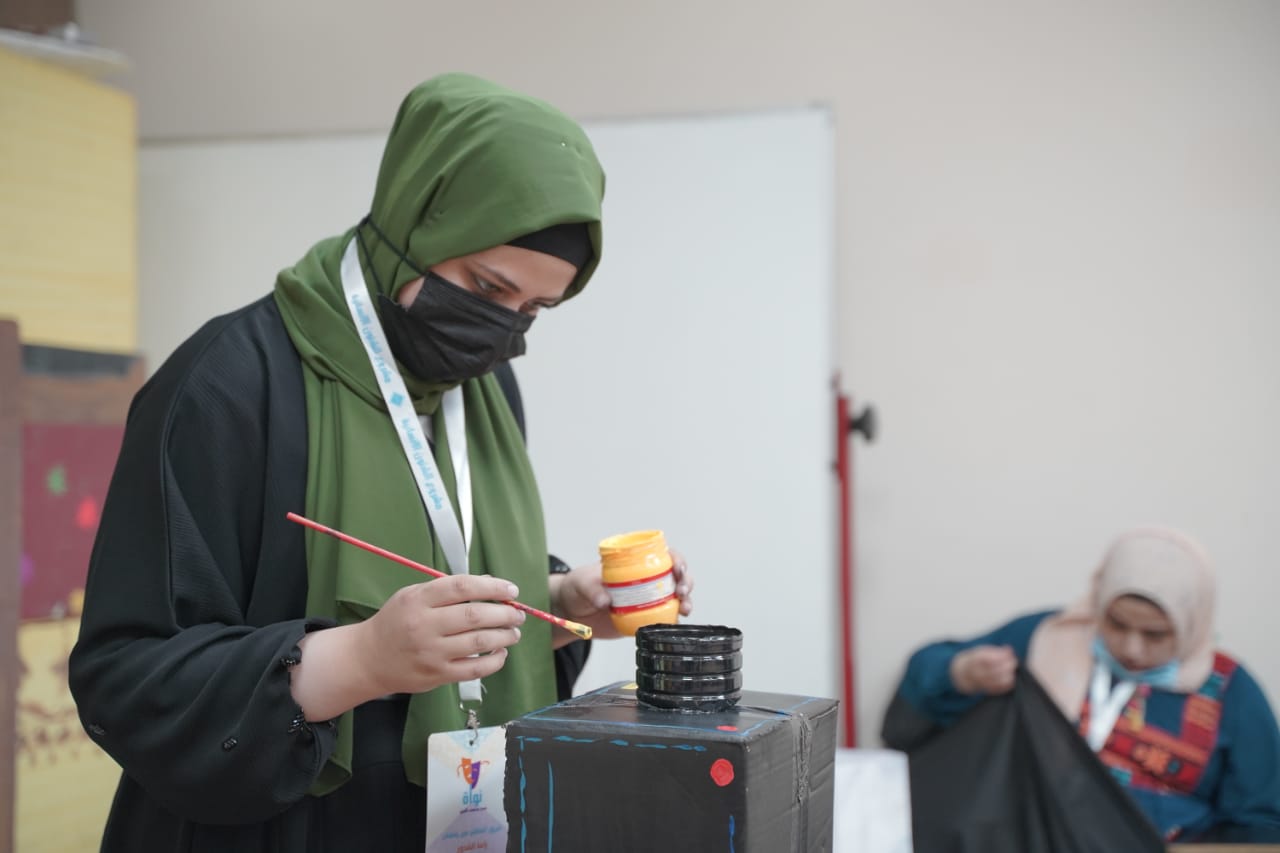
According to Rama Alkaddour - Syrian refugee living in Egypt - recycling became more appealing to women as a career path as it helps them make positive transformations. In Rama’s house, nothing goes to waste, she is always on the lookout to turn waste into ecological products, turning the damage into a story of success.
“I consider the discarded items a gift from nature to me, so I will not let it go to waste,” she says.
Rama attended awareness-raising workshops and acquired recycling crafts among other skills at the age of 15 in a UNFPA-operated Women and Girls Safe Space (WGSS). After Four years of continuous learning, she became a volunteer at one of the WGSS in the governorate of Sharqeya. She contributes in developing the scripts and building sets for community theater performances tackling major issues such as gender-based violence and early marriage.
Using their handicraft skills and making the best out of the available resources, Rama and other volunteers built an entire theater set from repurposed material. “We started using the water bottles we use during the rehearsals, among other materials, ” she explains.
Breaking the gender stereotypes in board games
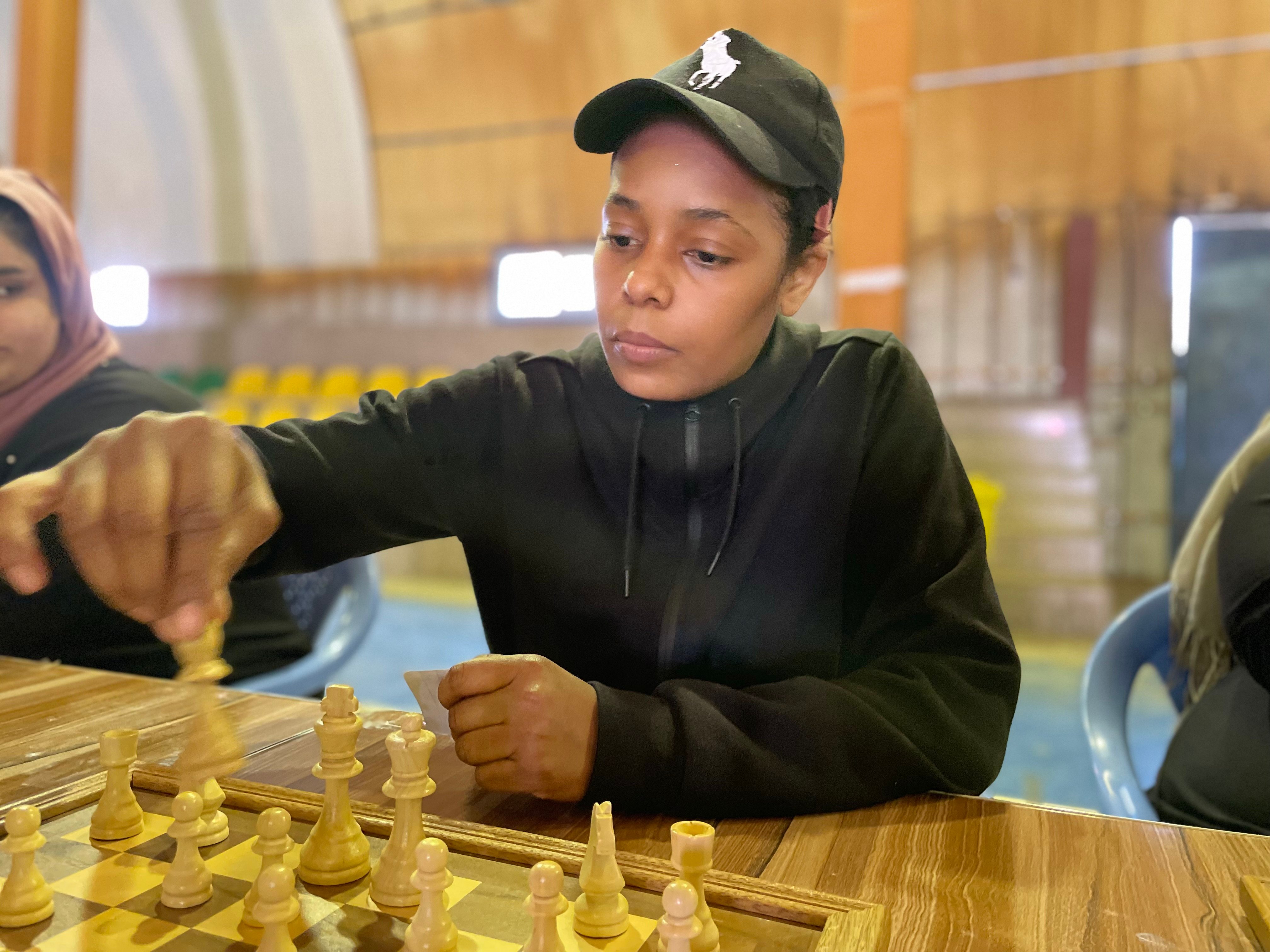
“My father wanted me to be strong, a leader. He wanted me to count every move to protect myself, so he taught me chess,” says Waad, a 35 years old woman photographer from Iraq.
Waad has been a chess player since she was 11 years old. She believes that it is time to reverse the trend of imbalance in the world of board games such as chess. She visited a UNFPA-supported first female youth centre and there she volunteered to train women and girls how to play chess.
“As women, we need to learn to rely on ourselves, access opportunities and have the courage to follow our dreams,” adds Waad. That's why she gives advice to women and girls on how to think strategically and beware of the moves around.
“Many girls are taken out of school at a young age. I believe that chess can help increase their analytical and strategic thinking and empower them,” explains Waad while making a successful chess move.
Rap is not restricted to one gender!
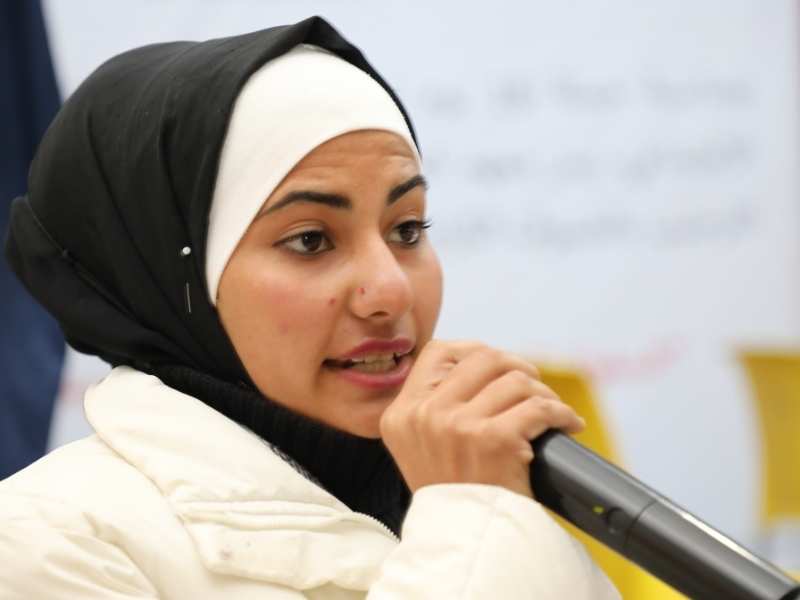
Many women and girls are not only rapping, but they are also doing it in an impressive way, proving that they have the talent. But talent hasn’t been enough without support to thrive.
Ahed - 19 year old adolescent girl living in Zaatari Camp in Jordan - loves rapping and reciting Bedouin poetry to address issues she cares about, especially the rights of girls and women.
”I was fortunate enough to meet the right mentor at the right time at a UNFPA-supported youth centre in Zaatari Camp. There I recieved the helped to author my own rap song on child marriage and its impacts on the lives of many girls in the camp,“ explains Ahed.
Following her passion, Ahed launched several campaigns to raise awareness about gender-based violence, amplifying the voices of many girls who are subjected to violence or any form of controlling behaviours.
“I won’t stop raising awareness until all girls in my community are empowered and free to decide and lead their futures,” says Ahed.
Determined to fight violence against women and girls
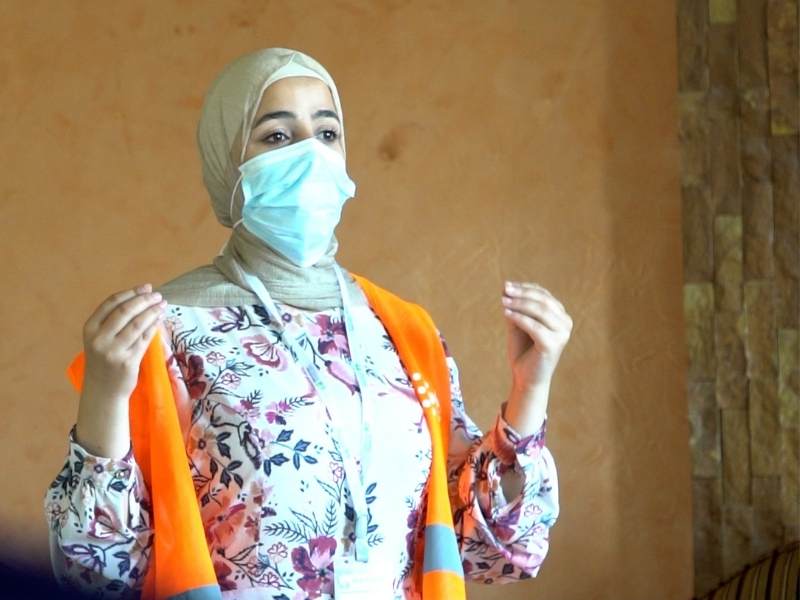
Lara has always wanted to make a positive change in her community in Tripoli, one of the most vulnerable areas in Lebanon. She is a peer educator at Akkarouna - one of UNFPA implementing partners. She has been conducting awareness sessions on gender-based violence and early marriage over the past few years.
“I figured out how important awareness sessions were when I realized that there are so many married women unaware of all that marriage requires,” Lara noted.
Lara advocates for ending all forms of violence against adolescent girls, including forced and child marriage.
“My heart pounds when I see women from my neighborhood initiating conversations about child marriage and how to protect their daughters,” says Lara. “A concrete decrease in the number of child marriages in Tripoli is being noticed and I’m proud to be part of this change.”
The transformational change
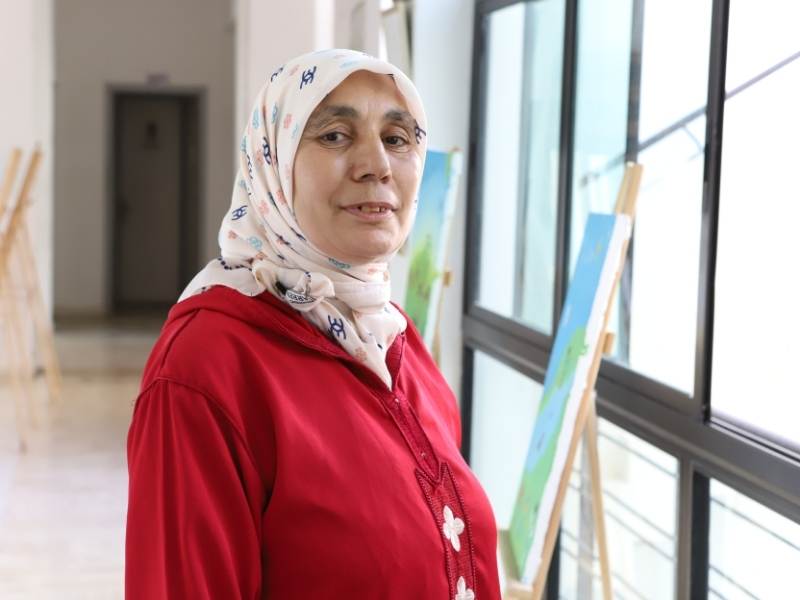
Darissa - 55 years old Moroccan woman - has survived multiple forms of gender-based violence.
“My husband left us penniless and hungry. I was not given the right to education and forced to get married at a very young age,” says Darrisa while memorizing what she has been through.
She has lived more than half of her life subject to violence and fear. But all this disappeared when she joined the UNFPA-supported Women and Girls Safe Space of the Batha centre where she benefited from the listening cell, and met with the psychologist and legal advisers.
Despite decades of suffering, Darissa never surrendered, but decided to be a committed activist for women's rights. She joined a women’s group called ‘Wellina monadilates’ [We have become activists], to denounce violence, break the silence and support newcomers in their quest for empowerment.
Now, Drissia is fully cured from her fears. “As soon as I got to the centre, I felt safe. I met several women survivors of gender-based violence and discovered that I am not the only survivor, I am now stronger, thanks to the UNFPA supported Batha centre.” she says with a smile of hope.
Fighting for a better future
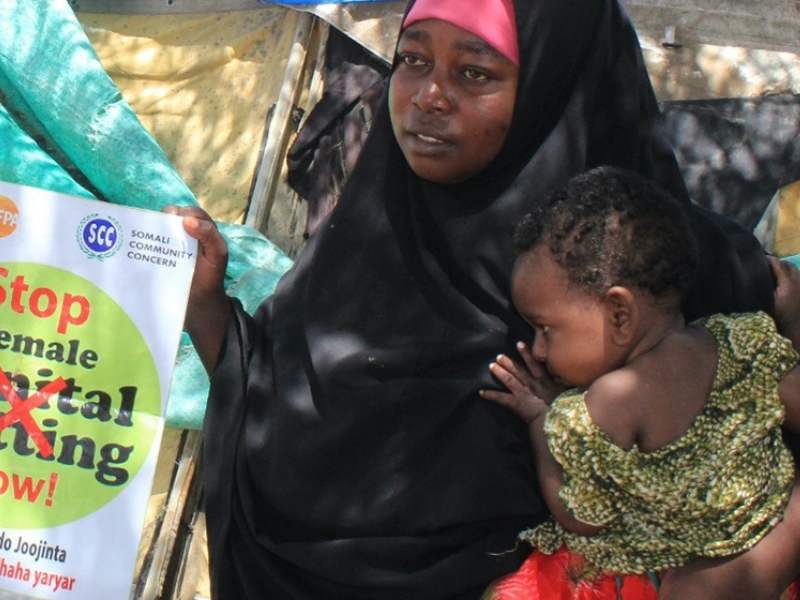
“I realized that there is no relation between religion and female genital mutilation, so I swore to abandon this harmful practice. I call on every mother to protect her daughters from it.” says Asha from Somalia.
Asha learnt that religion does not inflict harm on children and that FGM is a human rights abuse against girls and women. This shift is attributed to the accurate information she received from Somali Community Concern (SCC) mobilizers on the health consequences and general impact of FGM.
“ I deeply regrets that one of my daughters underwent FGM,” says Asha. “I remember how painful it was for her and how much she suffered.”
Now, Asha does not want her 11-month-old baby girl to be subjected to this painful practic, and she has initiated conversations with fellow mothers about the harmful consequences of FGM.
Against all odds, creating a new life
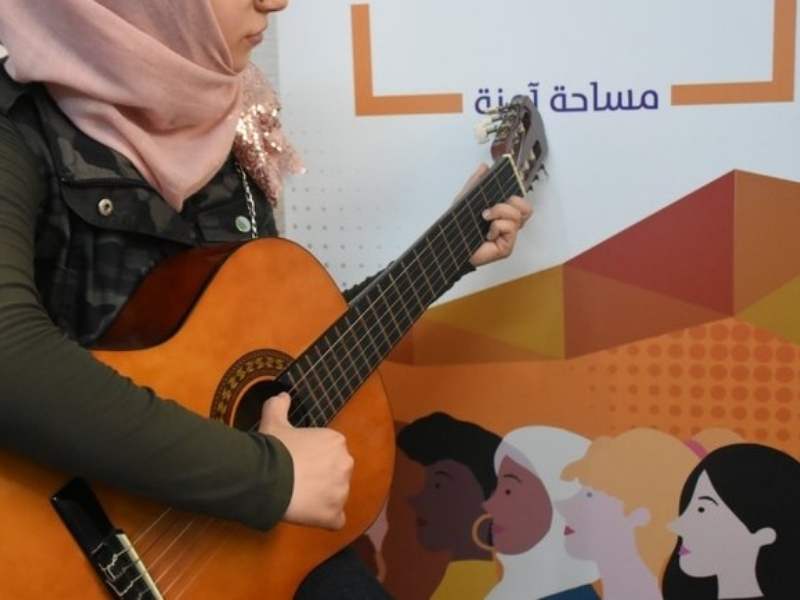
Hala from Syria was forced to marry at the age of 12. Her life became burdened with commitments, responsibilities and intimate partner violence.
“I gave birth to my first child at the age of 15, and after four years, I got divorced. I was not welcomed by my father because of my daughter. We were exposed to physical violence by one of my family members, and this eventually led to my drug addiction,” said Hala.
Yet Hala was lucky enough to attend awareness-raising and vocational training sessions to develop her skills. Hala started to work from home producing crafts to generate income for her family. She was also referred to a psychiatrist who helped her to overcome drug addiction.
"Early marriage is a common phenomenon in my society, and I will try to fight this problem. I will start with my daughter," added Hala with a determined look on her face.
Devoted to saving lives
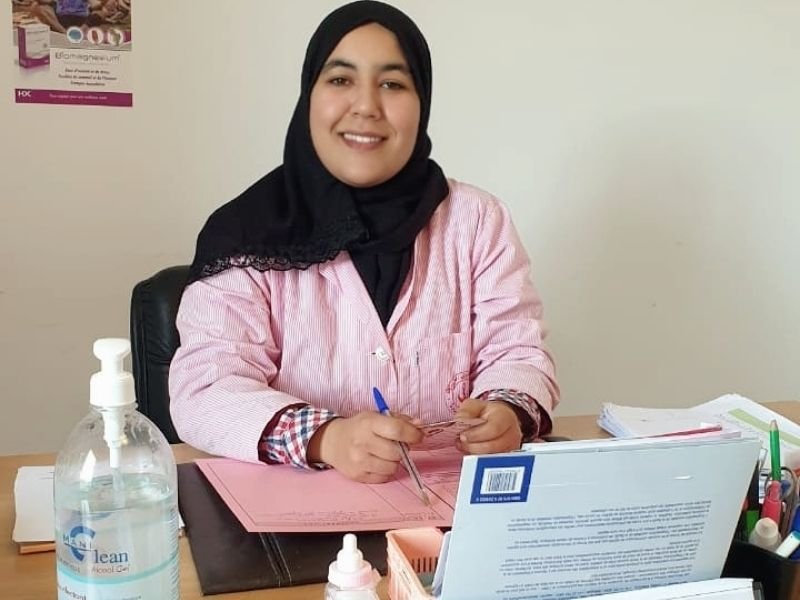
Marwa Dab joined the Tunisian Association of Reproductive Health (ATSR) in Tataouine as a volunteer midwife, and quickly became a comprehensive sexuality education trainer and project coordinator.
Marwa - 24 years - exerts no effort to support women and girls in her community and beyond. She serves as a midwife and counselor to women - mainly migrants and displaced - suffering from an array of difficulties to access services related to prenatal, postnatal, gynecology, contraception, and family planning. She is also part of a mobile team that operates in remote areas of the region of Tataouine where little to no service delivery points are provided. Marwa is one of the pioneer midwives in the region.
“What motivates me to wake up every day and come to work is how our growing support to women impacts their lives and their families,” said Marwa.
From a child bride to a lawyer to be
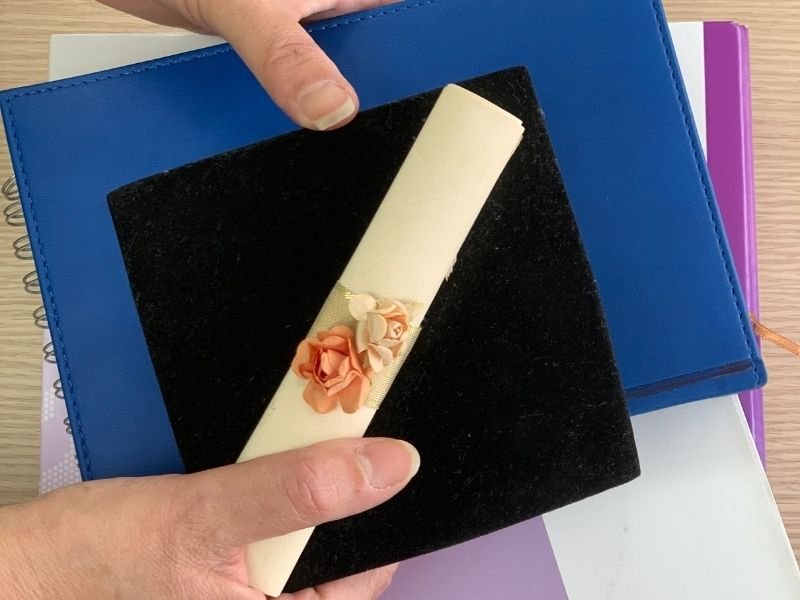
Fatima from Palestine was 15 when she was forced to marry a man 10 years older than her. She lived in a house with an additional 14 family members and her husband was absent all the time.
“One month after marriage, disputes erupted and I was exhausted from the accumulated household burdens,” she says.
Fatima tried to seek her family’s help, but they were unsupportive. She seeked support of the UNFPA-supported Jabalia Women’s Health Centre of Abed Al Shafi Health and Community Association (ACHA) where she received psychological and legal support until she was able to stand up on her feet.
“I am starting a new phase of my life without any oppression or suffering. I am now studying law to defend other women who suffer from violence,” adds Fatima.
*Name changed for protection and security
Women on the frontline of COVID-19
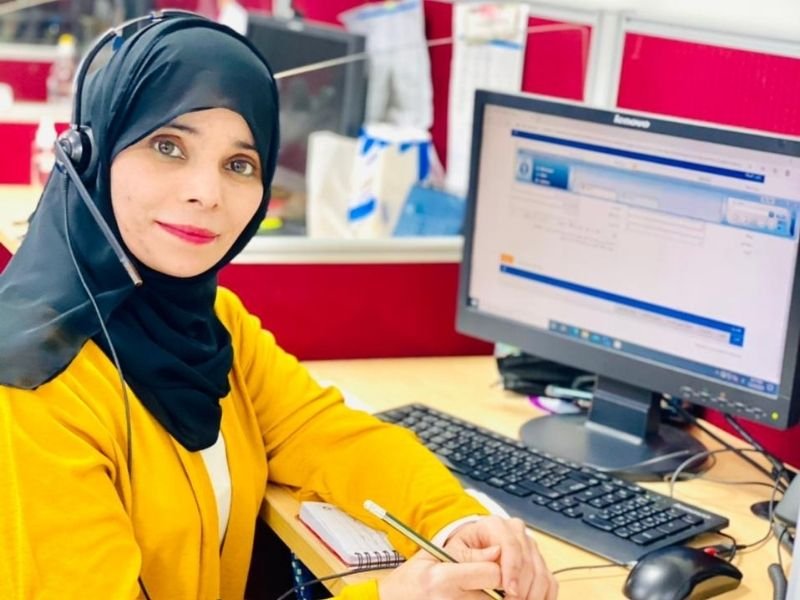
“I am very proud to be part of the COVID-19 response frontliners in Oman and to contribute positively to my country, ” says Ameera Al Shuaibi, a senior midwife from Oman at the Ministry of Health and the main dispatcher of the COVID-19 hotline for pregnant and lactating women.
In 2020, the hotline was established in response to the pandemic. Ameera’s commitment and professionalism are recognized and appreciated by the many women and girls who benefited from both superior medical and emotional care services.
“I am glad to be engaged in such an initiative and provide this critical front line service. I believe in our power as women to help our nations through crises and tough times.” Ameera concluded.
Women are entitled to live with dignity and in freedom from want, fear, and violence. UNFPA remains committed to support and empower them to thrive. Violence will not break the will of women and girls. Providing survivors with health services, psychological and legal support and empowerment will change the course and enhance their capabilities and contributions to their communities.

